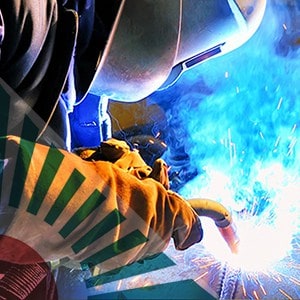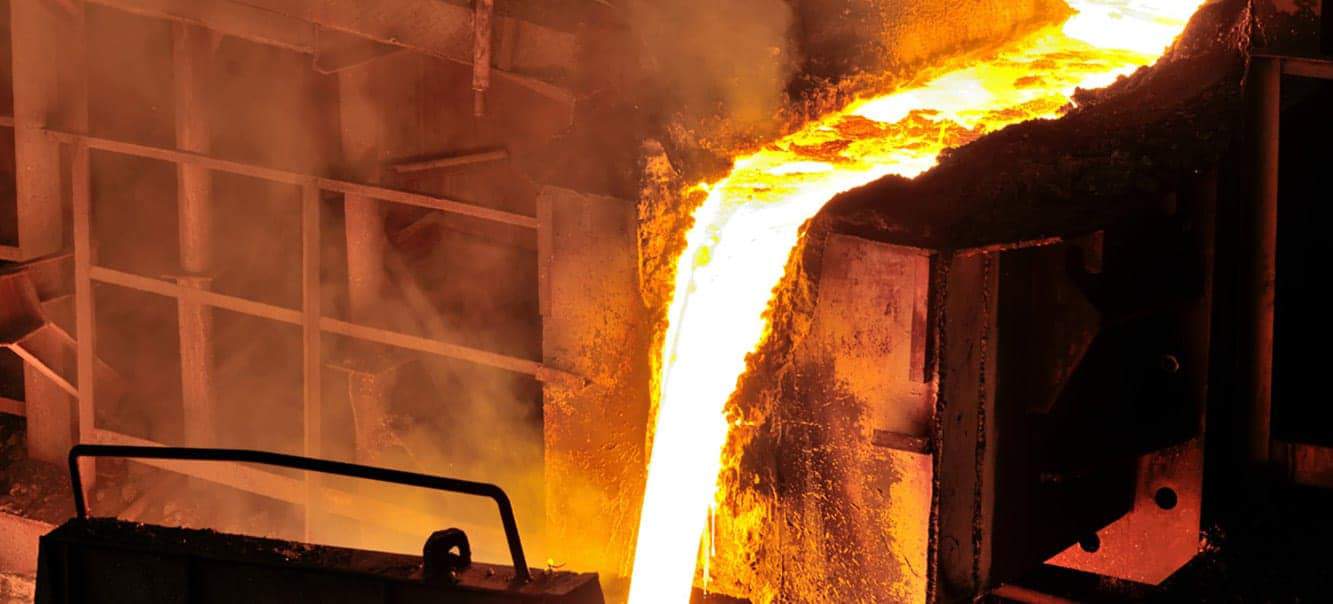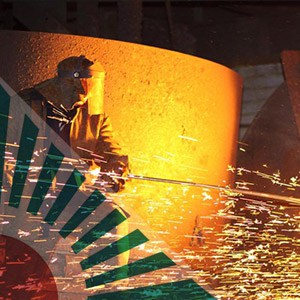2019 COID Policy Renewals Roadshow - CLASS XIII
As a valued client in the Metals and Engineering Industry, in preparation for the Class XIII COID Policy Renewals for 2019, we would like to take this opportunity to invite you to our policy renewals session.
At the renewals roadshow, you will get all the information you need on how to renew your COID policy, declare your earnings and update us on your latest staff complement.
Event Details:
| Date | Venue | RSVP |
|
18 February 2019 |
Cape Town
Crystal Towers Hotel Cape Town Marriott Hotel Crystal Towers, Century Boulevard, Century City, Cape Town. |
Book Here |
| 18 February 2019 | Durban
Gateway Hotel Corner Centenary Boulevard & Twilight Drive, Gateway, Durban. |
Book Here |
| 19 February 2019 | East London
Premier Hotel East London International Convention Centre. Marine Park Complex, 22 Esplanade, Beachfront, East London.
|
Book Here
|
| 19 February 2019 | Port Elizabeth
Protea Hotel Marine, Port Elizabeth Marine Drive, Summerstrand, Port Elizabeth |
Book Here |
| 20 February 2019 | George
Protea Hotel by Marriott George King King George Drive, King George Park, George. |
Book Here |
| 21 – 22 February 2019 | Johannesburg
Emperors Palace 16 Jones Road, Kempton Park, Johannesburg. |
Book Here
|
| 25 February 2019 | Pretoria
Premier Hotel 573 Church Street, Acadia, Pretoria. |
Book Here |
| 25 February 2019 | Emalahleni
Fortis Hotel Highveld Cnr Wolermade and Mandela Street, Emalahleni. |
Book Here
|
| 25 February 2019 | Welkom
Goldfields Casino Cnr Stateway and Buiten Road,Goldfields Plaza, Welkom. |
Book Here |
| 25 February 2019 | Rustenburg
Protea Hotel by Marriot R24 Rustenburg, Krugersdorp Road, Rustenburg. |
Book Here |
| 26 February 2019 | Bloemfontein
Protea Hotel By Marriott 202 Nelson Mandela Drive, Brandwag, Bloemfontein.
|
Book Here |
| 26 February 2019 | Roodepoort
Silverstar Casino R28, Muldersdrift, Mogale City. |
Book Here |
| 26 February 2019 | Polokwane
Protea Hotel Ranch Resort 25 km south of Polokwane on the N1 R101, Farm Hollands Drift. |
Book Here |
Who should attend
HR Managers, Business Owners, SHEQ Managers, HR Officers, Policy Administrators, anyone who processes company COID payments and IODs (Injury on Duty).
For enquiries, please email us at RMATraining@randmutual.co.za
We look forward to seeing you.
SEIFSA Welcomes Improvement in Employment Numbers, But Remains Concerned About Apparent Trade-Off between Manufacturing Production and Employment
Johannesburg, 12 February 2019 - The Steel and Engineering Industries Federation of Southern Africa (SEIFSA) welcomes the improvement – announced by Statistics South Africa (StatsSA) today – in the unemployment numbers in the domestic economy.
The latest Quarterly Labour Force Survey (QLFS), a household-based sample survey by StatsSA that captures labour market activities of persons aged 15-64 years, indicates an increase in jobs in manufacturing on a quarter-on-quarter basis. The StatsSA data generally capture a decrease in the unemployment rate from 27.5% during the third quarter of 2018 to 27.1% during the fourth quarter of 2018.
Speaking after the release of the figures, SEIFSA Economist Marique Kruger said the broader manufacturing sector – including its Metals and Engineering (M&E) cluster of industries – recorded employment gains of 48 000 jobs during the fourth quarter of 2018, representing a 2.8 percent quarter-on-quarter increment. However, the sector disconcertingly lost 24 000 jobs in the year, a 1.4 percent year-on-year change, despite an encouraging increase in output, highlighting an urgent need for sector-specific interventions.
The changes in employment numbers were varied in other industrial sectors. The mining sector recorded a net gain of 31 000 jobs on a quarter-on-quarter basis, adding to the net increase of 27 000 jobs year on year, while the construction sector shed 21 000 jobs on a quarter-on-quarter basis.
“The unemployment dilemma continues to be one which is difficult for policy makers and captains of industry to deal with. This is despite increased political will, as highlighted in both the jobs summit held late last year and in last week’s State of the Nation Address by President Cyril Ramaphosa. It is clear that efforts aimed at easing unemployment are bearing fruits, although time is needed for initiatives aimed at stabilising employment to become more effective,” said Ms Kruger.
Moreover, SEIFSA is confident that identified interventions aimed at accelerating inclusive economic growth and investment (both domestic and foreign) will improve employment numbers slightly in the medium to long term, Ms Kruger said.
Issued by:
Ollie Madlala
Communications Manager
Tel: (011) 298 9411 / 082 602 1725
Email: ollie@seifsa.co.za
Web: www.seifsa.co.za
SEIFSA is a National Federation representing 23 independent employer Associations in the metals and engineering industries, with a combined membership of 1600 companies employing around 200 000 employees. The Federation was formed in 1943 and its member companies range from giant steel-making corporations to micro-enterprises employing fewer than 50 people.
Further Decrease In Broader Manufacturing Output in December 2018 Worries SEIFSA
Johannesburg, 12 February 2019 - The decrease in output in the broader manufacturing sector in December 2018, as released by Statistics South Africa (StatsSA) today, is worrying, Steel and Engineering Industries Federation of Southern Africa (SEIFSA) Economist Marique Kruger said today.
The latest preliminary data published by StatsSA today indicated that production in the broader manufacturing decreased on a year-on-year basis in December 2018, when compared with November 2018. On a continuous three-monthly basis, output in the manufacturing sector has been very volatile, slowing down from 3.0 percent in October 2018 to 1.3 percent in November 2018 and to 0.1 percent in December 2018.
Ms Kruger said the performance in December 2018 was generally unexpected, especially after the release of promising data for the Purchasing Managers’ Index (PMI) which increased to 50.7 points in December 2018, effectively signaling the first time that the data trended above the benchmark level of 50 in 2018.
“The deceleration in output does not augur well for manufacturers since a positive performance is imperative towards lifting the real Gross Domestic Product figures for the fourth quarter of 2018,” said Ms Kruger.
However, Ms Kruger said the expectation was for businesses to remain resilient in the face of the current difficulties, including volatility in production, subdued domestic demand and high unemployment levels.
“Hopefully, a rebound in production in January 2019 will help in clawing back lost job opportunities from the sector,” concluded Ms Kruger.
Issued by:
Ollie Madlala
Communications Manager
Tel: (011) 298 9411 / 082 602 1725
Email: ollie@seifsa.co.za
Web: www.seifsa.co.za
SEIFSA is a National Federation representing 23 independent employer Associations in the metals and engineering industries, with a combined membership of 1600 companies employing around 200 000 employees. The Federation was formed in 1943 and its member companies range from giant steel-making corporations to micro-enterprises employing fewer than 50 people.
COSATU’S INTENDED PROTEST ACTION ON 13 FEBRUARY 2019
INTRODUCTION
Management will be aware, from recent media reports, that the Congress of South African Trade Unions (Cosatu) is preparing for a protest action in the form of a national strike on Wednesday, 13 February 2019.
This Management Brief provides some basic background to the issue and guidance to Management in dealing with the intended protest action.
PROTEST ACTION AND THE LABOUR RELATIONS ACT
Cosatu has been quoted in various media reports that it would stage a nationwide strike on 13 February over large-scale layoffs at ailing State-owned firms and at private companies.
The Labour Relations Act (LRA) permits registered trade unions or a federation of trade unions, such as Cosatu, to undertake protected protest action to promote the social and economic interests of workers, provided that they observe the procedural requirements contained in Section 77 of the LRA.
It is important to note that protest action in terms of Section 77 of the LRA is only protected if the issue in dispute has been considered by NEDLAC and the applicant concerned has given to Nedlac 14 days’ notice of its intention to proceed with such protest action. In the absence of these conditions, any protest action would not be protected.
However, it has been confirmed that Cosatu has filed a Section 77(1)(b) notice with NEDLAC, advising of its intention to participate in a socio-economic strike on 13 February 2019.
The NEDLAC Section 77 Standing Committee has determined the notice to be compliant with the administrative requirements of the LRA.
Consequently, employees participating in any form of stay-away or protest activity on 13 February 2019 will be protected by the normal rules regarding protected protest action to promote or defend the socio-economic interest of workers, namely: no-work, no-pay and no-disciplinary action.
RECOMMENDED MANAGEMENT ACTION
SEIFSA recommends that Management adopts the following course of action in dealing with any stay-away on 13 February 2019:
Inform all workers that any absences related to the protest action will be treated on the following basis:
- No work, no pay;
- No disciplinary action;
- A shift for leave pay and leave enhancement pay qualification purposes will be lost in respect of the day’s absence; and
- Any overtime worked during the course of the week will be paid at ordinary rates to make up for the lost ordinary working hours on 13 February 2019.
The Staff of SEIFSA’s Industrial Relations and Legal Services Division are available on (011) 298-9400 to provide any further advice and/ or assistance to Management on the contents of this Management Brief.
Encouraging Performance for Metals and Engineering Sector Projected To Continue
JOHANNESBURG, 8 FEBRUARY 2019 – Despite 2018 being a generally challenging year for both the global and domestic economy, the Metals and Engineering (M&E) sector is poised for a third annual consecutive growth in 2019.
This is according to the Steel and Engineering Industries Federation of Southern Africa (SEIFSA), which this morning officially released its authoritative State of the Metals and Engineering Sector Report for 2019-2020.
Gien the auspicious performance of the M&E cluster of industries in recent years, this year’s Report was published under the theme of “Sharpening the saw – continuously improving industry activity and competitiveness”.
SEIFSA Chief Economist Michael Ade said the Federation’s forecast is for the entire M&E sector to expand moderately by 1.8% in 2019. However, the various sub-sectors will register varied levels of growth, with some expanding and others contracting in 2019.
“The prognosis aligns with the outlook for both a moderating global growth and domestic growth in 2018, underpinned by a slowdown in the pace of recovery in commodity exporters, deceleration of growth in commodity importers, a slowdown of growth in global goods and industrial activity during the first half of 2018 and the imposition of broad-based tariffs by the United States on steel and aluminium imports. These developments have serious implications for the growth prospects of the M&E sector, which exports the bulk of its iron and steel products,” said Dr Ade.
Prices of most metals weakened in 2018, largely due to concerns about the effects of tariffs on global growth and trade, with industrial metals particularly responsive to these concerns, given their many uses in the manufacture of tradable goods. However, the expectation is for metal prices generally to stabilise in 2019 and 2020, thereby strengthening exports and improving growth prospects for commodity exporters – including the M&E cluster of industries – along with enhanced capital inflows.
However, this view is not without downside risks. These include the persistence of trade tensions, diminishing industrial activity, softening of international trade and investment and substantial financial market pressures on some large emerging market and developing economies (EMDEs). Dr Ade said that trade tensions between the US and China, including the imposition of tariffs on an array of products, have had varying effects on metal and agricultural commodities. He said the tensions, which affected roughly 2.5% of global goods trade and had implications for South Africa, continue to remain elevated.
Dr Ade said tighter external financing conditions – which contributed to significant capital outflows and more significant currency pressures in more vulnerable EMDEs, including South Africa – have the propensity of increasing external borrowing costs and the general cost of doing business, also negatively affecting production and foreign fixed investment into the sector.
“To confront this increasingly difficult environment, the most urgent priority is for EMDE policymakers to prepare for possible bouts of financial market stress and rebuild macroeconomic policy buffers as appropriate. Equally importantly, policy makers have to foster stronger potential growth by boosting human capital, removing barriers to investments and promoting trade integration within a rules-based multilateral system,” said Dr Ade.
He said that despite these downside risks, the M&E sector’s moderate growth prospects in 2019 is influenced by the positive growth prospects for key industries which are important markets for the M&E sector’s intermediary products and are crucial in the sector’s value chain. He said the performance of the domestic economy, which is forecast to grow at 1.3% in 2019 and 1.7% in 2020, supported by continuous improvement of regional markets in Africa, would also impact positively on the sector’s growth prospects.
According to Dr Ade, Sub-Sahara Africa is envisaged to improve moderately in 2019 (3.4%) and in 2020 (3.6%), providing a basis for more exports from the M&E sector. He said it was likely that this would translate into continued exports, bringing in much-needed foreign currency. He said this was especially so given the fact that Africa is the highest export destination for goods produced by companies in the M&E cluster.
Dr Ade said that 2018 was yet another better year for the M&E sector as it expanded for the second consecutive year, registering an improved estimated annual growth of 2.0%, despite facing serious structural headwinds, including a technical recession in the broader economy. He said the momentum was expected to continue in 2019.
Dr Ade said notwithstanding continuous constraints to the current potential to improve on margins in the M&E sector, all indications are that the sector will record another increase in growth during 2019, barring any major disruptions to production
“Given the recent resilience in production in the M&E sector, despite companies facing domestic headwinds, a need exists to ensure that the sector remains attractive by directly reducing increasing intermediate input costs and managing borrowing costs in order to improve consistently on the bottom line, exists,” Dr Ade concluded.
Issued by:
Ollie Madlala
Communications Manager
Tel: (011) 298 9411 / 082 602 1725
Email: ollie@seifsa.co.za
Web: www.meindaba. seifsa.co.za
SEIFSA is a National Federation representing 23 independent employer Associations in the metals and engineering industries, with a combined membership of 1600 companies employing around 200 000 employees. The Federation was formed in 1943 and its member companies range from giant steel-making corporations to micro-enterprises employing fewer than 50 people.
SEIFSA Welcomes President Ramaphosa’s Inspiring SONA
JOHANNESBURG, 8 FEBRUARY 2019 – The Steel and Engineering Industries Federation of Southern Africa (SEIFSA) warmly welcomes President Cyril Ramaphosa's inspiring State of the Nation Address. SEIFSA Chief Executive Officer Kaizer Nyatsumba said the President's speech was both rich in content and much welcoming of the important role that business plays in the country.
“After nine frustrating years of terrible leadership, during which the Government had a very hostile stance towards business, it feels very good to be able to say that South Africa has solid leadership again. We are very encouraged by the President's grasp of the serious challenges facing South Africa and, more importantly, his acknowledgement of the obvious fact that the Government alone does not have all the answers to the country's problems. We are very encouraged by the fact that he understands that all stakeholders have an important role to play and that he places such a welcome emphasis on the need for a meaningful partnership with business, Mr Nyatsumba said.
He said like other business organisations, SEIFSA - which is part of the manufacturing sector - stands ready to partner with the Government in an effort to grow South Africa’s economy. “We hope that the President will ensure that his Ministers also come to the party.”
In conclusion Mr Nyatsumba said the Federation commended the President for his war on corruption and fully shared his desire to see the country's law enforcement agencies rigorously prosecuting all those who have been implicated in State capture and other forms of corruption and malfeasance.
SEIFSA is a National Federation representing 23 independent employer Associations in the metals and engineering industries, with a combined membership of 1600 companies employing around 200 000 employees. The Federation was formed in 1943 and its member companies range from giant steel-making corporations to micro-enterprises employing fewer than 50 people.
Decrease In The Purchasing Managers’ Index For January 2019 Disappointing, Says SEIFSA
The Steel and Engineering Industries Federation of Southern Africa (SEIFSA) is disappointed by the decline in overall business activity in the broader manufacturing sector as reflected in the Absa Purchasing Managers’ Index (PMI) released today.
The data shows a slight dip in broader manufacturing activity in the country, registering a decrease against the backdrop of a strong performance last month. The preliminary seasonally-adjusted data showed that the PMI deteriorated from 50.7 points in December 2018 to 49.9 points in January 2019, with the data once again slipping below the benchmark level of 50, which separates expansion from contraction.
SEIFSA Economist Marique Kruger said when compared to December 2018 when the manufacturing sector trended in an expansionary region of 50.7 points, it is evident that there is a deterioration in the business activity index. This is a concern for the metals and engineering (M&E) cluster, especially given the prevailing low levels of domestic demand.
“It is also disheartening to note that nearly all five of the seasonally-adjusted
sub-components correspondingly registered decreases in January 2019 when compared to the previous month, with three out of the five sub-indices trending below the neutral level, Ms Kruger said.
Of the five sub-components, the employment sub-index increased the most, surging from 40.5 points in December 2018 to 48.3 points in January 2019, while the worst-performing sub-index was business activity (49.8 points).
SEIFSA is a National Federation representing 23 independent employer Associations in the metals and engineering industries, with a combined membership of 1600 companies employing around 200 000 people. The Federation was formed in 1943 and its member companies range from giant steel-making corporations to micro-enterprises employing fewer than 50 people.
Decrease In PPI For December 2018 Is Disappointing, Says SEIFSA
Johannesburg, 31 January 2019 – The latest data for the Producer Price Index (PPI) for intermediate manufactured goods is disappointing, indicating a further deterioration in selling price inflation in the Metals and Engineering (M&E) cluster of industries for December 2018, Steel and Engineering Industries Federation of Southern Africa (SEIFSA) Economist Marique Kruger said today.
The data, released by Statistics South Africa today, shows a slowdown in both the PPI for final manufactured goods and the PPI for intermediate manufactured goods from 6.8 percent in November 2018 to 5.2 percent in December 2018 and from 6.0 percent in November 2018 to 5.0 percent in December 2018, respectively.
Ms Kruger said the declining trend in PPI for intermediate manufactured goods is generally of concern to producers in the M&E cluster of industries since this PPI measures selling price inflation.
“Although declining prices are beneficial to those who buy the M&E sector’s products, the same cannot be said of businesses in the sector, which are struggling to improve on declining operational surpluses and profit margins,” Ms Kruger said.
Moreover, Ms Kruger said the decrease in the PPI for intermediate manufactured goods has the potential of reducing the existing positive differential between input cost inflation and selling price inflation.
She said it was necessary to maintain a positive differential between the selling price inflation and input cost inflation not only to sustain current businesses, but to also assist in creating new businesses in the medium to long term.
SEIFSA is a National Federation representing 23 independent employers Associations in the metals and engineering industries, with a combined membership of 1600 companies employing around 200 000 employees. The Federation was formed in 1943 and its member companies range from giant steel-making corporations to micro-enterprises employing fewer than 50 people
SEIFSA Welcomes Latest Inflation Easing
Johannesburg, 23 January 2019 - The Steel and Engineering Industries Federation of Southern Africa (SEIFSA) welcomes the easing of the Consumer Price Index (CPI) , with the numbers moving further away from the upper band of the South African Reserve Bank’s (SARB) inflation target.
According to Statistics South Africa (Stats SA) data, the annual consumer price inflation eased from 5.2 percent in November 2018 to 4.5 percent in December 2018. The month-on-month movement in the CPI was 0.2 percent.
Speaking after the release of the figures, SEIFSA Economist Marique Kruger said the slowdown in the prices of goods and services is a welcome relief for embattled domestic consumers who have been facing a number of headwinds, including tight credit conditions and the task of keeping their credit accounts in good standing.
“The lower CPI augurs well for over-indebted consumers as it will generally reduce pressure, thus enabling households to afford basic needs, while also enhancing their ability to service their debt obligations,” said Ms Kruger.
She added that increased spending against the backdrop of lower inflation generally augurs well for businesses in the manufacturing sector, including its Metals and Engineering (M&E) cluster of industries. This is the case especially given that demand for M&E intermediate products is usually driven by demand for final consumer goods produced.
SEIFSA is a National Federation representing 23 independent employer Associations in the metals and engineering industries, with a combined membership of 1600 companies employing around 200 000 employees. The Federation was formed in 1943 and its member companies range from giant steel-making corporations to micro-enterprises employing fewer than 50 people.
SEIFSA Welcomes Reserve Bank’s Decision To Leave Interest Rates Unchanged
Johannesburg, 17 January 2019 - The Steel and Engineering industries Federation of Southern Africa (SEIFSA) welcomes the South African Reserve Bank’s (SARB’s) decision to keep the repo rate unchanged at 6.75% and the prime rate at 10.25%, as it will further stimulate domestic demand and sustain the recent increase in real Gross Domestic Product (GDP) growth, SEIFSA Chief Economist Michael Ade said this afternoon.
The decision to keep rates unchanged comes against the backdrop of 2.2 % quarter-on-quarter increase in the real GDP during the third quarter of 2018, up from -0.4% during the second quarter of 2018.
“The announcement augurs well for businesses facing an increasingly constrained consumer demand, thereby invariably impacting negatively on their margins. Moreover, stability in interest rates not only provide some level of certainty to businesses, but also plays an imperative role toward reducing the cost of borrowing,” Dr Ade said.









